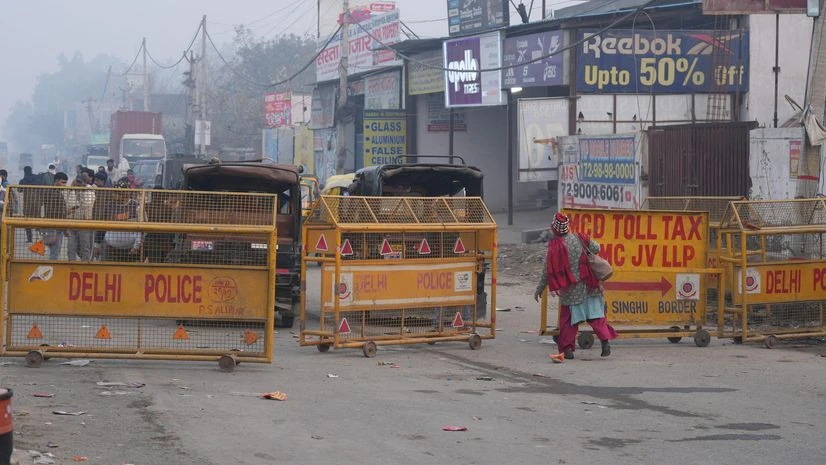Several farmers' unions, including the Samyukta Kisan Morcha (SKM), have called for a Gramin Bharat Bandh or nationwide strike on February 16, to press for their demands before the Centre. The SKM has urged all like-minded farmers' organisations to band together and participate in the Gramin Bharat Bandh called by the central trade unions. The day-long protest will begin from 6 am to 4 pm.
Additionally, farmers have announced plans to organise massive chakka jams on main roads from 12 pm to 4 pm, effectively disrupting normal traffic flow and drawing attention to their cause.
Punjab's state and national roadways are also set to observe closure for four hours on the same day.
The Bharat bandh call comes even as hundreds of farmers marching from Punjab have been stopped at the state's border with Haryana near Ambala, about 200 kilometres away from Delhi. Haryana's security forces have used tear gas on them to try and disperse them. A Delhi Police source stated that they are determined not to let the protesters enter the national capital should they advance.
Gramin Bharat Bandh: What will remain closed?
Transportation, agricultural activities, Mahatma Gandhi National Rural Employment Guarantee Act (MNREGA), rural works, private offices, village shops, and rural industrial and service sector institutions are expected to remain closed due to farmer unions' Gramin Bharat Bandh on February 16.
What will remain open during Bharat bandh?
According to reports, emergency services such as ambulance operations, newspaper distribution, marriage, medical shops, students going for board exams, etc., are unlikely to be affected during the strike.
More From This Section
What are the farmers' demands?
Farmers are back on the streets of Punjab and Haryana, demanding a law that guarantees a Minimum Support Price (MSP) for their produce.
The farmers also want to strengthen the MGNREGS, reintroduce the old pension program, and secure pension and social security for all workers in the formal and informal sectors.
The SKM has written to Prime Minister Narendra Modi, demanding an MSP for crops based on the Swaminathan formula of C2 50 (input cost of capital 50 per cent), legal procurement guarantees, debt waivers, no increase in electricity tariff, and no smart meters.
The farmers have also demanded 300 free units of power for farming for domestic use and shops, comprehensive crop insurance, and a hike in pensions to Rs 10,000 per month, among others.

)
